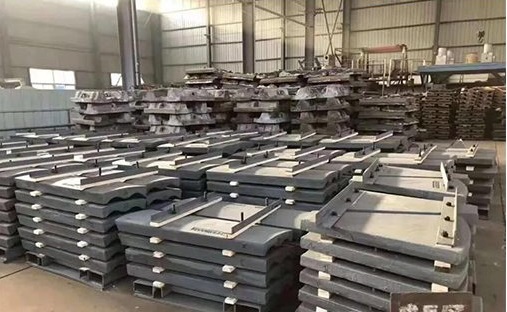Steel Mill Liners vs Rubber Mill Liners

When it comes to mill liners, mill liners manufacturers are usually conflicted between which kind of liners should be manufactured: rubber or steel. Each of them has their advantages, and disadvantages, so it can be a tough decision to make. It is also important to consider the sales and overall budget and profit ratio. In this article, we shall compare both the rubber and steel variant of mill liners.
Which is more cost-efficient?
This is a very dynamic question to ask. Although it seems reciprocal in nature, we have to consider many things that surround both rubber and steel to come to a conclusion.
For instance, in some countries the cost of rubber is high, while in others in much lower, as compared to steel. However, generally in both cases the cost will be less than the steel, but what happens when we get a bulk of mill liners?
Mill liners manufacturers have to keep in mind that if they are buying a mill liner with small balls, rubber would be the most efficient choice. However, as you keep increasing the size of the balls it makes it more efficient to buy the steel mill liners.
Which is better for abrasion grinding?
Abrasion grinding is a process wherein a lot of rubbing is involved, leading to a lot of wear and tear in the long run. Considering that, we will need a material that significantly decreases the probability of wear and tear after the milling process. If this is considered, mill liners manufacturers will definitely prefer to manufacture rubber liners because they are more resistant to wear and tear and in fact, they protect the milling shell from wearing out too.
Which is more versatile?
If we consider rubber only or steel only liners, this question would not make much sense. However, there are certain liners that are both rubber and steel composites. In other words, rubbers embedded within the steel structure of steel is capped over rubber, this gives us multiple benefits.
Rubber is more resistant to wear and tear, while steel is a sharper grinding tool, if we combine them in a way that they cover each other’s short comings, we will have a tool that is better than both steel-only or rubber-only mill liners. Deciding what they are closer to depends entirely on the composition.
Working with lifter bars?
Sometimes we require lifter bars to be close to each other, while at other times we need for them to be apart. In the former case, steel mill liners would be preferred and rubber liners would be preferred otherwise.
This is because, when lifter bars are in close proximity, there is an impact that rubber cannot handle very well, but when they are far apart, abrasive grinding increases and thus the benefit of rubber mill liners significantly increase.
Final Thoughts
What is better overall is one question, but what is better for your custom use is an entirely different thing, you should consult an expert or your dealer to understand which of them would be better when it comes to your personal needs and requirements. You can get both steel and Mill liners from H&G Machinery.
@Mr. Nick Sun NICK@XZHUAGANG.COM
Post time: Oct-16-2020
